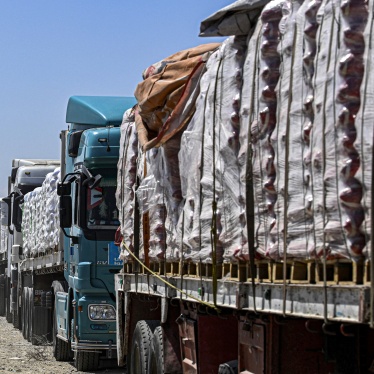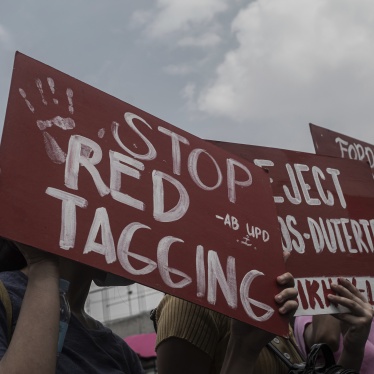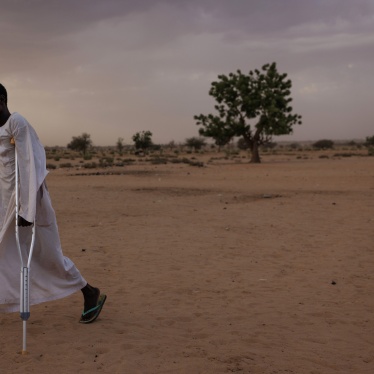Summary
- The Economic Activity of Public Bodies (Overseas Matters) Bill (the Bill) tabled on 19 June 2023 prevents “public bodies from being influenced by political or moral disapproval of foreign states when taking certain economic decisions”. The aim of the Bill is to stop public bodies from taking account of foreign states’ conduct, including their human rights record, when making procurement and investment decisions.
- We have two fundamental concerns with the Bill:
- The bill effectively restricts and discourages public bodies, including universities, local authorities and government departments, from making ethical and responsible investment and procurement decisions in line with their human rights and environmental responsibilities and obligations. It could have grave implications globally by restricting public bodies’ freedom to responsibly engage or disengage from business relationships when to do so would cause or contribute to human rights abuses or international crimes. For example, it could restrict public bodies from making decisions about responsibly investing or not investing in companies that are involved in the Chinese government’s systematic repression of Uyghurs, war crimes in the operations in Israeli settlements in the occupied West Bank or the Israeli authorities’ crimes of apartheid and persecution against Palestinians, and Saudi Arabia and UAE’s war crimes in Yemen (for further and fuller examples see below). More generally, the Bill’s ambiguity, disclosure requirements and financial penalties can also have a chilling effect on public bodies from even conducting human rights and environmental due diligence to assess whether their financial decisions might implicate them in human rights abuses and environmental harms. The Bill is at odds with the UK Government’s National Action Plan for implementing the United Nations Guiding Principles on Business and Human Rights (UNGPs) and the Government’s own business risk guidance, including on China and Israeli settlements. The Bill is a further step backwards for the UK, which has thus far failed enact legislation to implemented the 2017 recommendations of the Parliament’s Joint Committee on Human Rights to introduce an “offence of failure to prevent human rights abuses” along the lines of the Bribery Act. To date, the UK is yet to introduce mandatory human rights and environmental due diligence laws like a number of countries in Europe,[1] introduce import/export bans tied to grave human rights abuses like the US,[2] and close loopholes in its laws combatting modern slavery.
- It likely disproportionately interferes with freedom of expression and conscience protections, as well as the right to private life, and the responsibility to communicate as set out in the UN Guiding Principles on Business and Human Rights.
As such, we urge Parliamentarians to vote against this Bill.
Responsible financial decisions that the Bill could restrict:
- Public bodies, including local authorities and UK universities, choosing to introduce robust procurement rules to prevent and mitigate risks of becoming complicit in crimes against humanity, including unlawful imprisonment or other severe deprivation of liberty, or responsibly disengage from industries linked to the Chinese government’s systemic repression of Uyghurs and other Turkic Muslims in Xinjiang,[3] such as the surveillance industry.
- Public bodies, such as universities and local authorities, that choose to stop procurement or divest as part of responsible disengagement from companies that provide arms, for example, companies providing weapons and military equipment to the Saudi Arabia and UAE-led coalition that is responsible for human rights violations and war crimes in Yemen.
- Public bodies, including local authorities opting to responsibly disengage from companies involved in war crimes in Israeli settlements in the occupied West Bank, which are unlawful under international humanitarian law, or directly contributing to Israeli authorities’ crimes against humanity of apartheid and persecution against Palestinians.
- Public bodies choosing to responsibly disengage from companies implicated in crackdowns on human rights defenders including through mass surveillance and the unlawful use of force. For example, the crackdown on democratic protests in Hong Kong.
- Public bodies choosing not to a procure from surveillance technology companies, especially companies providing spyware, that are implicated in human rights abuses by a foreign state. For example, the NSO Group given the human rights concerns related to the use of their Pegasus spyware.[4]
- Local authorities’ freedom to decide not to invest in state-owned fossil fuel companies due to environmental and human rights harms. It would not only limit the ability of public bodies to make decisions about potential new investment projects, but also deter them from conducting robust due diligence for the responsible phaseout of fossil fuels.
- Charities providing health and other care services (classified as a public body carrying out public functions) choosing not to purchase medical products, including Covid-19 testing, from state-owned companies involved in mass genetic and personal data collection.
Statements the Bill would likely gag:
- UK universities stating their intention not to procure from any company implicated in the atrocities committed by the Chinese Government against Uyghurs in Xinjiang.
- Local councils or pension schemes passing motions expressing their support for or intention to divest from the arms industry directly connected to violations by Saudi Arabia and the UAE in Yemen.
- Local authorities pledging to divest from companies implicated in the human rights abuses in certain states, for instance, oil and gas companies benefiting the Myanmar military junta.
[1] See Law No 2017-399 of 27 March 2017 on the duty of vigilance for parent and instructing companies (France); Act relating to enterprises’ transparency and work on fundamental human rights and decent working conditions, entered into force 1 July 2022 (Norway); Act on Corporate Due Diligence to Prevent Human Rights Violations in Supply Chains, entered into force 1 January 2023 (Germany); European Commission, Proposal for a Directive of the European Parliament and of the Council on Corporate Sustainability Due Diligence and amending Directive (EU) 2019/1937, COM/2022/71 final. Austria, Belgium and the Netherlands have proposals underway.
[2] cf Uyghur Forced Labor Prevention Act (US) (enacted 23 December 2021). See Human Rights Watch, ‘UK Lags Behind Tackling Forced Labor in Xinjiang’ (16 January 2021).
[3] In January 2023, an investigation by The Times revealed that more than 40 British universities have collaborated with institutions that have been linked to malign activities of the Chinese state, including crimes against Uyghurs.
[4] See e.g. HRW, ‘India: Spyware Use Violates Supreme Court Privacy Ruling’ (26 August 2021); HRW, ‘HRW Among Pegasus Spyware Targets’(26 January 2022); HRW, ‘Hungary: Smear Campaign Targets Critical Voices’ (4 March 2022).








